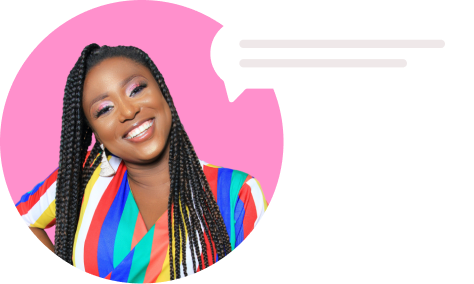Top 10 First Coaching Session Questions

Welcome, coaches! You're about to embark on an exciting journey into the heart of your coaching practice – the first session with a new client.
The first impression you make can set the tone for your entire coaching relationship, making it absolutely crucial to get it right.
But where should you start? What should you ask? And how do you ensure you're unlocking your client's true potential right from the beginning? If you've been pondering these first coaching session questions, you've landed in the right place!
In this definitive guide, we will explore all the elements that make a successful first coaching session and arm you with a solid list of thought-provoking questions to help you and your clients hit the ground running.
Are you ready to level up your coaching game?
Let's dive in! This is your must-read resource for mastering those first coaching session questions. Stick with us, and we'll guide you through every step to ensure your first session is as impactful as possible.
Here’s what we’ll cover in this guide:
Understanding the Goal of the First Session
Dive into the true aim of the initial meeting, and learn why setting the right tone and objectives from the get-go is vital to success.Essential First Coaching Session Questions
Explore the importance of asking just the right questions and discover our top 10 must-ask questions for your first coaching rendezvous.The Role and Importance of a Pre-Coaching Questionnaire
Get to know the purpose and benefits of pre-coaching questionnaires, and find out how they can help you hit the ground running.Navigating the Length and Pricing of an Intake Session
Confused about how long to spend or whether to charge for the intake session? Let's talk about the common practices and the reasoning behind them.Templates and Examples for the First Session
Need a guiding hand? We've got sample structures and real-world examples to make your first session a breeze.Reflecting on the First Coaching Session
Reflection is key. Unpack what should be answered and achieved after the session, and learn why adjustments and reflections are your path to continuous growth.
Understanding the Goal of the First Session
What's the Aim of the First Coaching Session?
So, you've got a new client, and that first meeting is coming up fast. But what's the goal here? Well, the first session is all about laying the groundwork. It's your chance to create a supportive environment, understand your client's aspirations, and identify their challenges.
No need for detailed action plans just yet—think of it as gathering the pieces of a puzzle you'll help your client assemble over time.
Setting the Right Tone and Objectives: Why It's Crucial
Why does the tone of the first session matter? Simple. It shapes your client's perception of you and their coaching experience. A positive, empowering tone builds trust, fosters open communication, and lays the foundation for future sessions.
And what about objectives? They're your compass in the coaching journey. Without clear objectives, you've got potential but no direction.
Remember, the first session is about crafting a roadmap for your client's self-discovery and goal-attainment journey. The questions you ask are your tools for creating this roadmap.
Essential First Coaching Session Questions
Alright, now we're cooking! Now that we've got a handle on the first session's goal, let's talk about how we will get there. And yes, you guessed it—we're going to do it by asking the right questions.
The Power of Asking the Right Questions
You see, the art of coaching is rooted in the ability to ask meaningful, insightful questions. The right questions can invite introspection, spark curiosity, and ultimately guide your client towards their own solutions.
It's not about telling your client what to do—it's about helping them uncover the answers already within them. This is where your first coaching session questions become your guiding light.
Top 10 Questions to Set You Up for Success
Now that we've established the importance of asking the right questions let's dive into some of the most impactful ones you can employ during your first session.
These questions are about opening the dialogue, establishing a rapport, and understanding your client's goals and obstacles.
"What brings you here today?"
This is your icebreaker. It's an open-ended question that invites your client to share their story, allowing them to start wherever they feel comfortable. It sets the stage for a non-judgmental, empathetic space where they can feel heard and understood."What are your hopes for our coaching relationship?"
This question aligns expectations. It helps you understand what your client hopes to gain from your sessions together. Knowing their expectations can help you effectively tailor your approach to meet their needs."What are the goals you'd like to achieve through coaching?"
It's all about vision here. What does your client want to accomplish? This question helps clarify the end goals, making them explicit and clear. With a target in sight, creating a roadmap to reach it becomes easier."What challenges are you currently facing that you'd like to address?"
Every hero has a dragon to slay. This question uncovers the obstacles your client is facing. Knowing these challenges gives you context and helps you understand where your client might need the most support."Can you tell me about a time when you overcame a challenge?"
This one is about resilience. It highlights your client's past victories, reminding them of their strength and capability. It also offers insight into their problem-solving strategies—valuable information for future sessions."What strengths do you think will help you during this process?"
This question allows your client to recognize and affirm their strengths. It builds self-confidence and serves as a reminder that they already possess resources to navigate their journey."How do you typically handle stress or setbacks?"
This question sheds light on your client's coping mechanisms. It helps identify areas of potential growth and can guide your coaching strategies."What would success look like for you at the end of this coaching journey?"
This question helps both of you visualize the desired outcome. It makes the abstract idea of "success" more concrete and personal, making it a powerful motivator."What kind of support would be most helpful to you from me as your coach?"
This question is all about collaboration. It gives your client a say in the coaching process, encouraging them to take ownership of their journey. It also helps you fine-tune your coaching style to better support your client."How committed are you to making the necessary changes?"
This is a reality check. Change requires commitment. This question gauges your client's readiness for change and can help you understand the effort they're willing to put into the process.
Armed with these questions, you're well on your way to facilitating an effective, insightful, and goal-oriented first coaching session.
But remember, while these questions are a great starting point, it's essential to let your client's responses guide the conversation organically. The most important thing? Keep them talking, keep them thinking, and keep them engaged!
The Role and Importance of a Pre-Coaching Questionnaire
Let's switch it up and discuss a tool that can be a game-changer in your coaching practice: the pre-coaching questionnaire.
You might think, "Hey, I've got my first coaching session questions ready to roll—why do I need a pre-coaching questionnaire?" Great question! Let's break it down.
The Purpose and Benefits of a Pre-Coaching Questionnaire
Think of a pre-coaching questionnaire as a super scout—it goes ahead, gathers key intel, and helps you plan your strategy. It's a set of questions you send to your clients before the first session, aiming to gather basic information, understand their motivations, and get a sense of their goals and challenges.
The benefits? Plenty!
A well-crafted pre-coaching questionnaire or intake page can help save time during the first session by giving you a head start. It allows you to hit the ground running by having a clear picture of your client's needs, aspirations, and potential roadblocks. This way, you can spend more of that precious first session diving deep rather than gathering basic information.
How a Pre-Coaching Questionnaire Aids in Preparing for the First Session
Here's the deal: the more you know about your client before your first session, the better you'll be able to facilitate a fruitful conversation.
A pre-coaching questionnaire allows you to understand your client's expectations and perceptions of their situation. With this information at hand, you can tailor your "first coaching session questions" to address their specific needs and circumstances.
So, whether you're an experienced coach or just starting, consider a pre-coaching questionnaire an essential part of your toolkit. It equips you better and signals to your client that you're genuinely interested in understanding and meeting their unique needs.
Navigating the Length and Pricing of an Intake Session
Let's talk logistics. You're all set with your first coaching session questions, you've got your pre-coaching questionnaire ready to roll, but how long should your intake session be? And the million-dollar question: to charge or not to charge?
Let's unpack these, shall we?
How Long Should an Intake Session Be?
The length of an intake session—or that first, get-to-know-each-other session—can vary based on your coaching style and client's needs. But generally speaking, you're looking at anywhere from 60 to 90 minutes. Why so long? This session sets the stage for the rest of your coaching relationship.
You need time to understand your client's story, discuss their goals, navigate their challenges, and start outlining a roadmap for success. Rushing this process can leave critical elements unexplored, so be generous with the time you allot for this first crucial meeting.
To Charge or Not to Charge for the Intake Session?
Ah, the tricky question of pricing. The truth is, there's no one-size-fits-all answer. It depends on your business model and your philosophy as a coach.
Some coaches offer the intake session for free, viewing it as a part of the onboarding process. They consider this a chance to show potential clients the value they can provide, essentially using it as a marketing tool.
On the flip side, other coaches choose to charge for the intake session, treating it as a regular coaching session. After all, you're offering your time, expertise, and value even in that initial meeting. This approach can also filter out those who aren't serious about the coaching process.
In the end, the decision is yours to make. Consider your target clients, your business model, and your value proposition. Whether you decide to charge or offer it for free, make sure you communicate the value and purpose of the intake session clearly to your potential clients.
Remember, your approach to the intake session sets the tone for your entire coaching relationship. A well-planned, thoughtful intake session can set you up for a successful coaching journey with your clients. So, take the time to consider the length and pricing that works best for you and them.
Templates and Examples for the First Session
Alright, we've covered a ton of ground so far, haven't we? Now, let's take all that theory and see it in action. I'll provide a sample structure or template for that all-important first coaching session, followed by examples of how to bring it to life.
Let's dive in!
Sample Structure for the First Coaching Session
Here's a general template for structuring your first coaching session. Remember, this is flexible and should be adapted based on your coaching style and your client's needs:
Introduction (5-10 mins): Warm-up conversation, setting the tone for the session.
Discussing the pre-coaching questionnaire (10-15 mins): Here, you delve into the answers provided by the client in their questionnaire, allowing for clarification and deeper understanding.
Presenting the top 10 first coaching session questions (45-60 mins): This is where you ask those key questions we talked about earlier, facilitating a deeper dialogue about your client's aspirations, challenges, and readiness for change.
Goal setting (10-15 mins): Based on the discussion, brainstorm potential goals for the coaching journey.
Wrap-up and next steps (5-10 mins): Summarize key points, agree on any homework or actions to take before the next session, and confirm the date and time of the next meeting.
Bringing the Template to Life
Let's break down how you can make this template work in action:
Introduction: Start with a friendly conversation. Welcome them, thank them for choosing to work with you, and let them know you support their journey. Make them feel comfortable and heard.
Discussing the pre-coaching questionnaire: Pull up their answers and discuss them. For example, if they've listed "improving leadership skills" as a goal in the questionnaire, ask them to elaborate. What does good leadership look like to them? Why do they think it's important for their growth?
Presenting the top 10 first coaching session questions: This is your meat and potatoes. Ask the questions and encourage open, honest answers. Facilitate a dialogue rather than conducting an interview. Remember, it's a conversation.
Goal setting: Based on their answers, you might say, "It sounds like you're really focused on enhancing your leadership skills. Would that be a primary goal for our coaching sessions?" Collaboratively work to set specific, achievable goals.
Wrap-up and next steps: Wrap up by summarizing the session's key points. You might assign homework, like a reflective journal or a reading assignment. Finally, make sure to set up the next session.
Remember, the first session is about building a solid foundation for the coaching relationship. With the right structure and approach, you can make it a powerful launchpad for your client's journey.
Reflecting on the First Coaching Session
You've navigated your way through the first coaching session—congratulations! But as any seasoned coach knows, the work doesn't stop when the session ends. Reflection and adjustment are crucial parts of the process. But what should you aim to have achieved after this initial session, and why is reflection so important?
Let's delve into that.
What Should Be Achieved After the First Session?
The first session is the foundation stone of your coaching journey, so by the end of it, you should have a clear picture of a few key things:
Understanding your client: You should have a solid grasp of who your client is, their motivations, challenges, and aspirations. This is where those "first coaching session questions" come into play!
Establishing goals: You and your client should have brainstormed potential goals for your coaching journey together.
Setting expectations: You and your client should clearly understand what to expect from the coaching relationship and the next steps.
Remember, the first session isn't about achieving radical transformation—it's about setting the stage for the work to come. It's about creating a space of trust and understanding and outlining a roadmap for your client's journey.
The Importance of Reflection and Adjustment for Subsequent Sessions
Reflecting post-session isn't just beneficial—it's essential. This is your chance to evaluate what worked well and what didn't. Did your client resonate with your methods, or do adjustments need to be made? Reflection allows for constant growth and refinement of your coaching skills.
Encourage your client to reflect, too. Their insights or additional questions can pave the way for richer future discussions. Coaching is dynamic, and as your clients grow, so should you. Reflection ensures you evolve in step with your clients, effectively guiding them on their journey.
With Clarityflow, asynchronous coaching gives you and your client the flexibility to reflect on the session at your own pace, allowing for deeper insights and more thoughtful adjustments for subsequent sessions—talk about making reflection a breeze!
Conclusion and Next Steps: Elevate Your Coaching with Clarityflow
We've journeyed through the nuts and bolts of that all-important first coaching session—from understanding its purpose, the key questions to ask, how to structure it, right down to reflecting upon it.
As coaches, our job is to guide our clients on their transformational journey, and that journey begins with a strong first session. And remember, just like your clients, you are on a journey of growth and learning. Each client and session is an opportunity for you to become a better coach.
Now, you're well-equipped with knowledge and ready for action! It's time to take your coaching sessions to the next level. So why not put these tips into practice with Clarityflow? Discover how it can streamline your coaching process, letting you focus on what matters most—unlocking your clients' potential! Try Clarityflow today!


